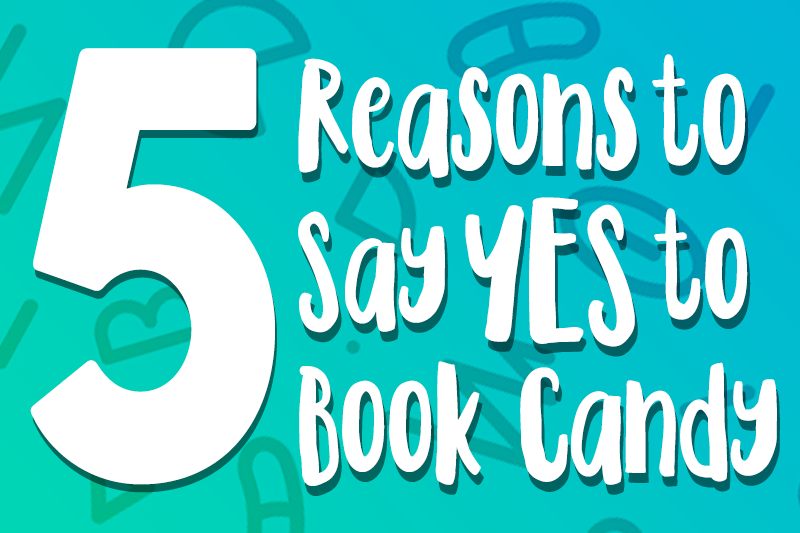My favorite candy is Reese’s Peanut Butter Cups. I love everything about them: the small size cups, peeling off the paper and the perfect mix of the soft peanut butter with the hard chocolate. There is nothing I don’t like. But if I ate them all the time, I’d probably get really tired of them. I’d definitely gain a lot of weight, and I’d have break-outs all over my face. There is no nutritional value.
But every now and then, they’re the perfect treat. They make me happy! I like book candy, too. Book candy is a treat. I don’t read book candy every day, but every now and then it hits the spot.
What Is Book Candy?
People magazine is my book candy. It doesn’t offer any educational value. I don’t even know if what I’m reading is true! It doesn’t challenge me. But, it’s fun, and it makes me happy. I’ll spend that $4.99 when the time is right.
Our students need this time, too! They need a little down time. Every now and then, a little candy won’t hurt. In fact, I think there actually are some benefits to having book candy (books that kids LOVE to read for fun) available and accessible for students! Through my experience, I have gathered five compelling reasons to let students read a little book candy:
1. Book Candy Helps Develop a Trusting Culture
“Making difficult books accessible and easy books acceptable” is one of my favorite educational quotes by Linda Fielding and Cathy Roller. To create a culture full of trust, respect and acceptance, we need to be trusting, respectful and accepting. While one of our missions for the school year is to help students read increasingly complex texts, we must also build a culture where they will do that and trust you to help them do that.
When they are reading book candy and you are accepting of their choices, you will have opportunities to talk to the students about what they are reading, why they chose a particular book and gather tons of information about their interests and abilities. It’s not healthy all the time, but every now and then, it’s more than okay!
2. Book Candy Creates Engagement
Observing a student with their favorite book candy will give you a glimpse of what their engaged reading looks like. Sometimes it’s difficult to see a reluctant reader fully engaged in their book, but giving them something they love, nutritional or not, will give you insight to their reading habits and give them a feeling of success.
3. Book Candy Lets Us Have Some Laughs
Some students think they don’t enjoy reading simply because they’ve never enjoyed a book. Books that contain a certain level of grossness, silly illustrations, sarcasm or words like underwear and booger will sometimes push that fake reader right over the edge to reading!
4. Book Candy Contains Some Hidden Nutrition
What we think of as book candy might actually have some educational benefits. Graphic novels, for example, offer many situations for students to create inferences and meaning from the illustrations. The many popular diary series often have a strong sense of voice and perspective. Informational texts about the gross animals, gross jobs or strange but true gross anatomy often have many text features that students will unintentionally use to find what they want to read. They will skim through some sections and read closely through others.
5. Book Candy Builds Habit
Having the freedom to read books you love in a culture of acceptance brings out engagement, fun and, most likely, some hidden skills along the way. What better way to build the habit of reading and to create life-long readers? In this short video clip, I talk more about why I value book candy, and why access and choice are SO important.
As you can see, choice is key—and that includes the occasional choice to read book candy. Lessening the reins and being more accepting of students’ choices that we may see as too easy or not classic enough can actually build confident, happy and engaged readers. Attitude is everything. If we build a climate in our classrooms where trust, support and guidance are put first, even the most reluctant reader will begin reading. Confidence will bloom, and with that, a gentle nudge or suggestion to read a more complex book will actually be seen as welcoming.
After all, if we have something all the time, it gets a little old, right?








Leave A Comment